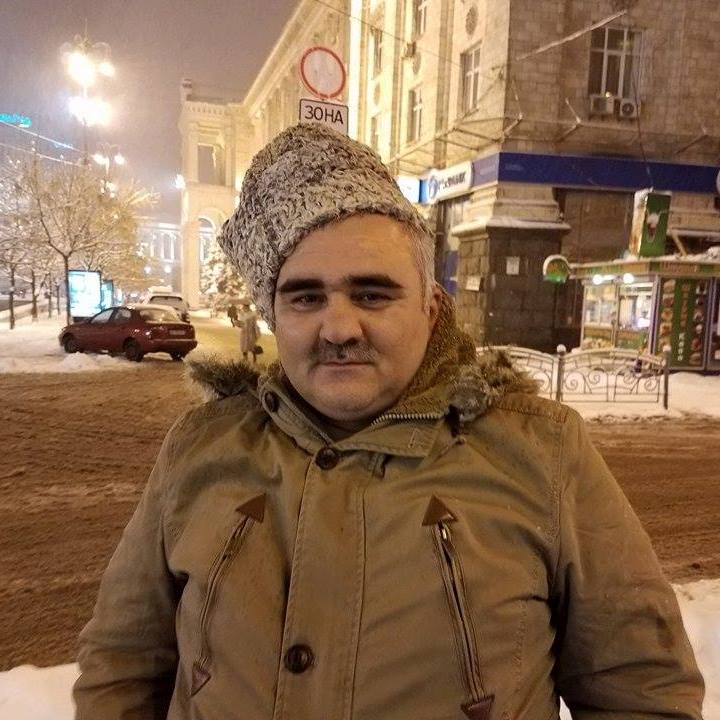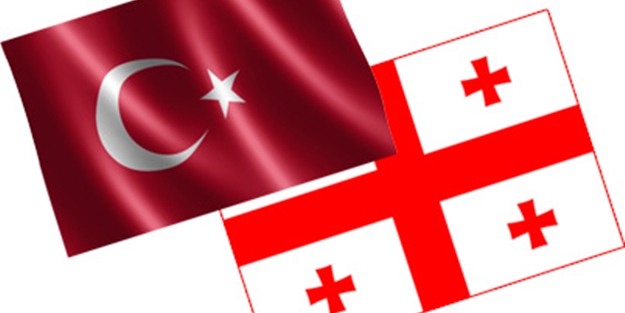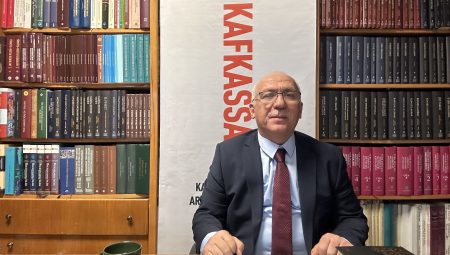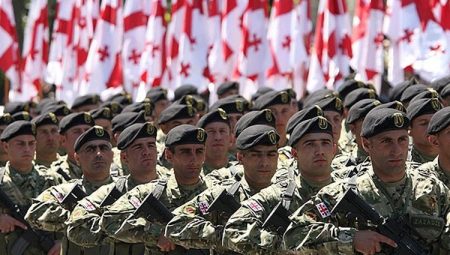Georgia’s international standing has long benefited from being sandwiched between authoritarian countries, thus making it look good on the regional freedom charts. But its eagerness to stay on good terms with authoritarian-minded neighbors like Azerbaijan and Turkey appears to be having a negative impact on Tbilisi’s rights record.
In its increasingly aggressive campaign against critical journalists, the Azerbaijani government appears to have arranged for the brazen kidnapping of investigative reporter Afgan Mukhtarli from downtown Tbilisi and his forced delivery to Azerbaijan to face trial. The incident has outraged many Georgians, who view it as a crude violation of sovereignty and a spineless reaction, if not craven connivance, on the part of their government.
“This is unbelievable. If someone from our side is involved, they should go to prison,” said media analyst and publisher Lasha Tugushi at a protest rally on May 31, the day after Mukhtarli’s kidnapping.
“Short of a declaration of war, I can’t think of a worse way to violate national sovereignty,” said Ana Natsvlishvili, chairperson of rule of law watchdog Georgian Young Lawyers’ Association, in comments to television station Channel 1.
Mukhtarli went to buy bread near his house in Tbilisi on May 29 and turned up next day some 600 kilometers away in Baku, where he is now held in pre-trial detention pending a trial on illegal border-crossing and smuggling charges. Mukhtarli said through his lawyers that he was forced into a car in Tbilisi by unknown assailants, beaten, blindfolded and driven all the way to the Azerbaijani capital. Lawyers said that 10,000 euros was forcibly placed in his pocket at the border.
Azerbaijan President Ilham Aliyev’s family has a personal issue with Mukhtarli, said prominent Azerbaijani investigative journalist Khadija Ismayilova. “He was investigating their business in Georgia and also was very supportive to me when I was in danger,” she told EurasiaNet.org. “Thanks to him, they could not physically harm me.” When Ismayilova was harassed and blackmailed in an alleged retaliation for her investigative work, Mukhtarli effectively acted as her bodyguard.
Ismayilova said that part of the reason Mukhtarli was targeted is that he was helping fellow Azerbaijani journalists and activists escape persecution in Azerbaijan and resettle in Georgia. Government-controlled media in Azerbaijan have been assailing Georgia for becoming a refuge for Azerbaijani dissidents. Mukhtarli’s fate suggests that officials in Tbilisi appear to be giving in to pressure from Baku.
“Many of us have been denied residency or refused entry recently,” said Vidadi Isgandarov, political activist from Azerbaijan living in exile in Georgia. “I was personally summoned to the Georgian security service recently and asked to leave Georgia.”
The big if is whether or not Georgian authorities helped the Azerbaijani secret services carry out Mukhtarli’s abduction. “I want the Georgian government to explain how my husband crossed an international border with no identification papers on him,” said Mukhtarli’s wife, Leyla Mustafayeva, as she displayed her husband’s passport at a protest rally in Tbilisi.
“The Georgian government also shares responsibility for his fate and should come clean about its role in his detention,” said Giorgi Gogia, South Caucasus Director at New York City-based Human Rights Watch.
With an investigation underway, Georgian officials initially fumbled for a convincing explanation. From the prosecutor general to education minister, officials passed the buck to Azerbaijani prosecutors, who claimed that Mukhtarli was caught crossing the border illegally.
Many Georgians were not impressed with their government’s response. “If the Azerbaijani border has been moved to downtown Tbilisi, someone needs to fill us in, just to make sure we don’t end up trespassing by chance,” Gogia wrote on Facebook.
“I want to go down buy some yogurt, but I am afraid that it might involve crossing a border to Azerbaijan,” wrote Sopho Bukia, editor of JAMnews.
Mukhtarli’s wife and media freedom activists are incredulous that the Georgian officials find it perfectly plausible that a man, who escaped Azerbaijan fearing reprisals, would go back of his own volition and with no identification on him to face all but certain imprisonment.
Many, including Mukhtarli’s wife and lawyers, believe that Georgian authorities are somehow complicit in his detention. Georgian Interior Minister Giorgi Mghebrishvili issued a peremptory dismissal, saying that any insinuations to that effect are meant to discredit law-and-order agencies. “It is unfair to blame Georgian or Azerbaijani law enforcement agencies based only on what lawyers and media are saying,” Mghebrishvili said on June 1.
All the same, the government is facing a maelstrom of public shaming across social media under a hashtag of “SOCARtvelo,” a portmanteau of the Georgian word for Georgia (Sakartvelo) and the name of Azerbaijan’s state gas corporation (SOCAR).
Observers say that Tbilisi is facing a tough diplomatic dilemma. “Georgia finds itself in a very delicate situation,” said Kornely Kakachia, political science professor at Tbilisi State University. “Tbilisi needs to strike a precarious balance between maintaining strategic partnerships with its neighbors and demanding respect for its own statehood, image and policies.”
The region’s political and energy security is largely shaped by partnership between Azerbaijan, Georgia and Turkey. Georgia is both a consumer and a conductor of Azerbaijani energy exports, and the three countries are supportive of one another’s territorial integrity and foreign policy ends. But Georgia’s goal to build European Union-style and European Union-allied democracy appears to be threatened by its two neighbors’ authoritarian proclivities.
On the Turkish side of the triumvirate, Ankara is requesting extradition of Mustafa Emre Çabuk, a secondary school teacher living in Georgia. Çabuk was detained on May 24 at the behest of Turkish authorities, who accuse him of ties to followers of Fethullah Gülen, a US-based cleric. President Recep Tayyip Erdoğan blamed Gülen of masterminding a failed coup last year and labeled the Gülen movement, which operates a network of schools, as a terrorist organization. One Tbilisi-based Gülen school has lost its license earlier this year in an apparent nod to Ankara.
Amnesty International said that Çabuk, like Mukhtarli, is at risk of torture, and called on Georgian authorities not to hand him over to Turkey. The Georgian Young Lawyers Association said that Çabuk’s detention ran counter to Georgia’s commitment to the European Convention on Human Rights.
“Georgia has not asserted its position in the region properly,” Kakachia said. “It is harder in Turkey’s case, but these regional partnerships run both ways and Azerbaijan also needs Georgia’s support. By dint of careful, but principled diplomacy, Tbilisi has to make it clear to its neighbors that there are red lines.”
Editor’s note: Giorgi Lomsadze is a freelance journalist and a frequent contributor to EurasiaNet.org’s Tamada Tales blog.





